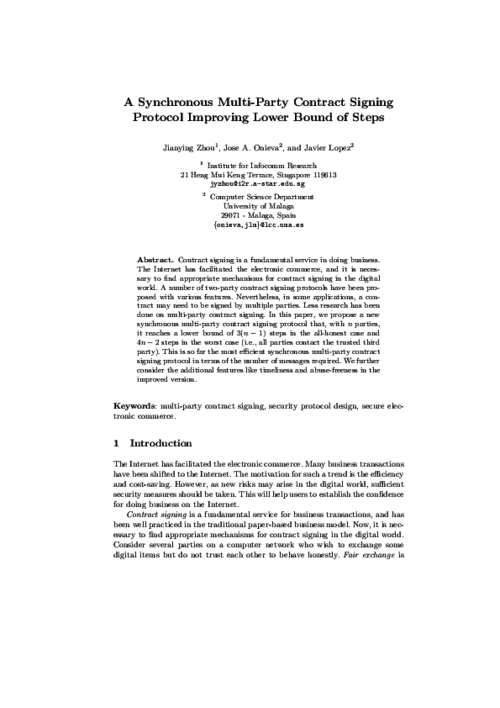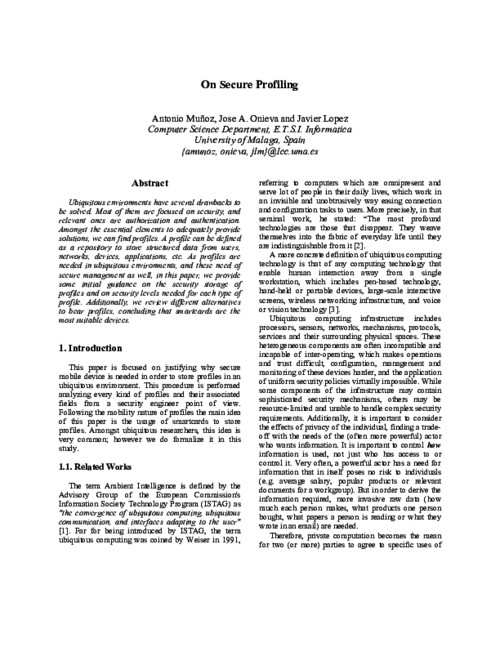 ]
] |
"Secure Multi-Party Non-Repudiation Protocols and Applications", Advances in Information Security, vol. 43, Springer, 2009.  |  |
21st International Information Security Conference (IFIP SEC’06), no. 201, Springer, pp. 221-232, May, 2006.
Abstract
Contract signing is a fundamental service in doing business. The Internet has facilitated the electronic commerce, and it is necessary to find appropriate mechanisms for contract signing in the digital world. A number of two-party contract signing protocols have been proposed with various features. Nevertheless, in some applications, a contract may need to be signed by multiple parties. Less research has been done on multi-party contract signing. In this paper, we propose a new synchronous multi-party contract signing protocol that, with n parties, it reaches a lower bound of 3(n − 1) steps in the all-honest case and 4n − 2 steps in the worst case (i.e., all parties contact the trusted third party). This is so far the most efficient synchronous multi-party contract signing protocol in terms of the number of messages required. We further consider the additional features like timeliness and abuse-freeness in the improved version.

1st International Workshop on Secure Ubiquitous Networks (SUN’05), IEEE Press, pp. 214-218, August, 2005.
Abstract
Ubiquitous environments have several drawbacks to be solved. Most of them are focused on security, and relevant ones are authorization and authentication. Amongst the essential elements to adequately provide solutions, we can find profiles. A profile can be defined as a repository to store structured data from users, networks, devices, applications, etc. As profiles are needed in ubiquitous environments, and these need of secure management as well, in this paper, we provide some initial guidance on the security storage of profiles and on security levels needed for each type of profile. Additionally, we review different alternatives to bear profiles, concluding that smartcards are the most suitable devices.
